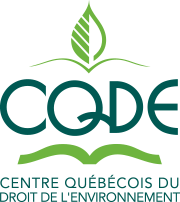Mitchikanibikok Inik First Nation says Quebec’s Mining Act is unconstitutional
Montreal/ Traditional territory of the Kaniwn’’kehá:ka and Haudenosaunee peoples, February 15th 2024 — The Mitchikanibikok Inik First Nation are taking the Government of Quebec to court for its systematic failure to consult and accommodate them and other Indigenous communities before granting mining claims and allowing exploration activities to occur in their territories.
The Mitchikanibikok Inik (also known as the Algonquins of Barriere Lake) will be at the Superior Court of Quebec on February 19-21, represented by Ecojustice and lawyers at the Centre québécois du droit de l’environnement (CQDE). The First Nation is challenging the constitutionality of portions of Quebec’s Mining Act.
Quebec’s Mining Act allows “free entry” for anyone to claim and explore land, including Indigenous land. This framework allows mining claims to be registered on Indigenous communities’ territories without first consulting and accommodating them, or even notifying them. Claim holders also have automatic rights to undertake many exploration activities, again with no consultation or accommodation.
Under Canada’s Constitution, the government has a legal duty to consult and accommodate Indigenous Peoples before allowing mining activities on their territories that may affect their asserted Aboriginal rights and title. By design, Quebec’s free entry mining regime does not allow for consultation prior to registering mining claims or allowing impactful exploration activities. According to the Mitchikanibikok Inik First Nation, that is unconstitutional.
This case follows on the heels of other Indigenous communities successfully challenging provinces’ free entry mining regimes: the Ross River Dena Council’s case in the Yukon and the Gitxaala Nation and the Ehattesaht First Nation’s case in BC. The bottom line is clear: outdated and unconstitutional free entry mining regimes cannot be allowed to subsist.
Danielle Gallant, lawyer, Ecojustice said:
“For too long, the rights and sovereignty of Indigenous Peoples have been disregarded in the name of resource extraction. Free entry mining is an outdated colonial policy that illegally ignores the government’s constitutional duty to consult and accommodate Indigenous communities before mineral claims are registered and exploration activities are allowed on their territories.
“Quebec has recently amended the Mining Act, with the goal of facilitating Indigenous consultation on certain exploration activities. This change signals that Quebec knows its current framework is failing, and yet this amendment still falls short. We hope this court case will be an important step in righting this systemic wrong.”
Marc Bishai, lawyer at the CQDE, said:
“How can it be that after a few clicks and the payment of a trivial sum, anyone can go explore for minerals, without prior consultation, in ancestral land that is the home of an Indigenous community since time immemorial? We are hopeful that Québec courts will follow the precedents of other Canadian courts and declare that this can no longer be tolerated.”
Free entry mining struck down elsewhere in Canada
The legal landscape on free entry mining in Canada has shifted in recent years, with various courts recognizing the rights of Indigenous Peoples to be consulted about mining activities in their territories.
In 2012, the Yukon Court of Appeal found that the province’s free entry mining regime was inconsistent with the constitutional duty of the Crown to consult and accommodate Indigenous communities on decisions that may impact them. In 2023, the B.C. Supreme Court also ruled that Indigenous communities must be consulted before any mineral claims are registered or exploration is conducted in their territories.
The Chiefs of Ontario just launched a call for a one-year pause on online mining claims, saying the mining system in that province infringes on their right to proper consultation and accommodation.
About
Ecojustice uses the power of the law to defend nature, combat climate change, and fight for a healthy environment. Its strategic, public interest lawsuits and advocacy lead to precedent-setting court decisions and law and policy that deliver lasting solutions to Canada’s most urgent environmental problems. As Canada’s largest environmental law charity, Ecojustice operates offices in Vancouver, Calgary, Toronto, Ottawa, and Halifax.
The Centre québécois du droit de l’environnement (Québec Environmental Law Centre), Québec’s only environmental law charity, offers independent legal expertise and education tools to citizens and law students, contributes to the development of robust and effective environmental laws and uses the law to protect the environment and citizens’ rights to access justice.
– 30 –


